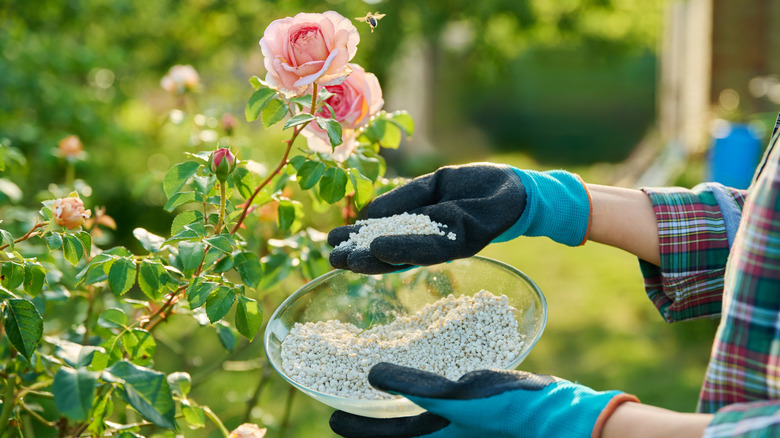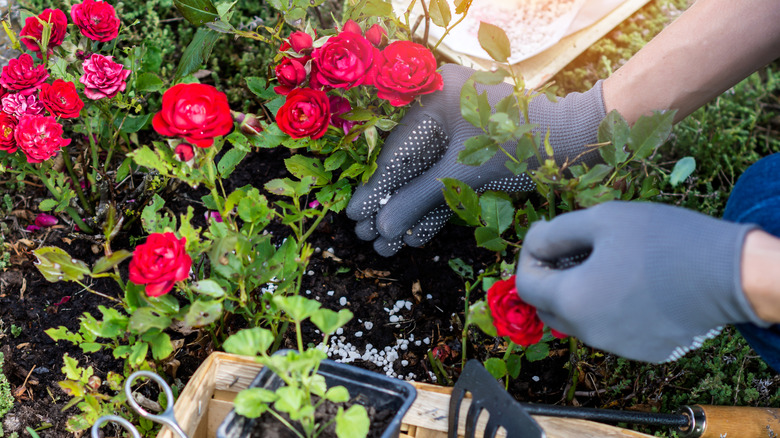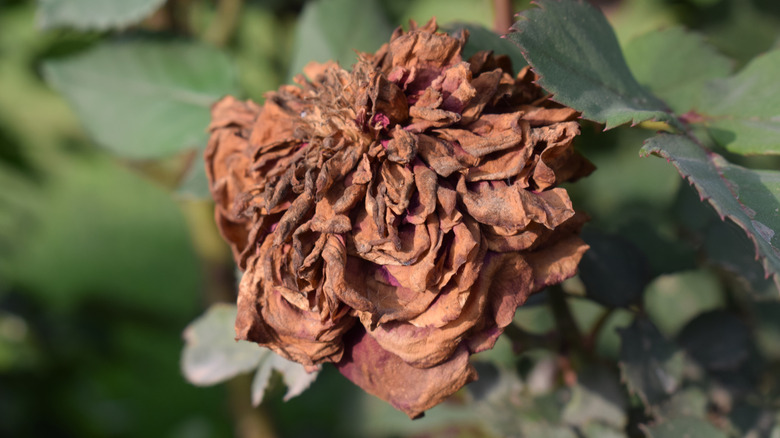Fertilizing Roses: The Disadvantages Of Skipping This Step & When To Do It
Few flowers evoke feelings of love and romance quite like the rose (genus Rosa). These iconic and symbolic perennials can bring vibrancy to your garden year after year, with delicate petals that bloom in hues from passionate crimson to lily white. While some varieties of bushes are low-maintenance and require little fuss, there are still gardening mistakes you want to avoid to in order get more blooms from your roses.
Like most plants, rose bushes require essential nutrients and minerals to flourish into their full potential. Neglecting a rose bush's soil health can lead to stunted growth, discolored leaves, and dead plants, which is why fertilizing your roses bushes is a critical step you might not want to overlook. When you choose to fertilize your roses is equally important. Over fertilizing, or fertilizing a plant that is too young, can leave your roses weak and susceptible to unwanted pests.
Understanding how fertilizer can help or hurt your plant is the first step towards perfecting your soil for thriving roses. Being intentional with your timing and paying attention to your plant's needs are clever tricks that will help your rose garden thrive. Here's how to choose the ideal moment to fertilize your rose plants and encourage happy roses that grow back year after year.
When you should fertilize your roses
Roses require essential nutrients like nitrogen, potassium, and magnesium to successfully bloom. You can use organic or chemical fertilizer depending on your personal preference, but chemical fertilizers require more frequent applications since they release nutrients at a faster rate. When you're first establishing a rose plant, you want to avoid supplying any additional fertilizer for the first six weeks while the plant is still laying down roots. For more mature plants, avoid fertilizing when temperatures are high, as this can cause nutrients to release too quickly, and can result in shocked or stunted roses.
It's best to initially fertilize in early spring, while the plant is gearing up to bloom, or early summer before temperatures climb too high. The time of day is also an important factor to consider. It's best to fertilize early in the mornings while it's still cool out, or late afternoon, after the sun begins to wind down for the day.
You also want to avoid fertilizing too late in the season to give your plant time to prepare for the winter months ahead. Fertilizing and encouraging growth too close to cold weather can encourage blooms that can experience stress and damage from frost. Applying fertilizer too late in the summer or early fall can make it difficult for your rose plant to harden off to brace for cold weather, and can affect growth for the following year.
The disadvantages of not fertilizing roses correctly
Adequately nutritious soil is key to a thriving rose bush. Neglecting your precious plant can result in an absence of flowers, yellow, discolored leaves, and potential pest infestations. Low levels of nutrients leave stems looking small and stunted, and petals pale and lackluster. Weak plants are also a prime target for unwanted visitors.
A sturdy and healthy rose bush is more equipped to fight off pest infestations than vulnerable, under-fertilized roses. Common garden pests like aphids, mites, and beetles make themselves right at home in compromised rose plants and can cause damage by feeding on the plant's delicate leaves and sweet sap. This can also cause your rose's leaves to look discolored or visibly damaged with holes and feeding marks. Healthy roses in nutrient-dense soil are better prepared to resist these infestations and less likely to attract colonies looking to take over your gardens.
Fertile soil is a simple way to prevent wimpy, underwhelming flowers as well. Providing additional nutrients every four to six weeks early in the season can help nurture a thriving, hardy plant that is more likely to bloom again next year. Fertilizing established plants routinely is an effect way to prevent barren bushes and annoying pests and can encourage vibrant blooms that bring a touch of romance to your home's garden year after year.


